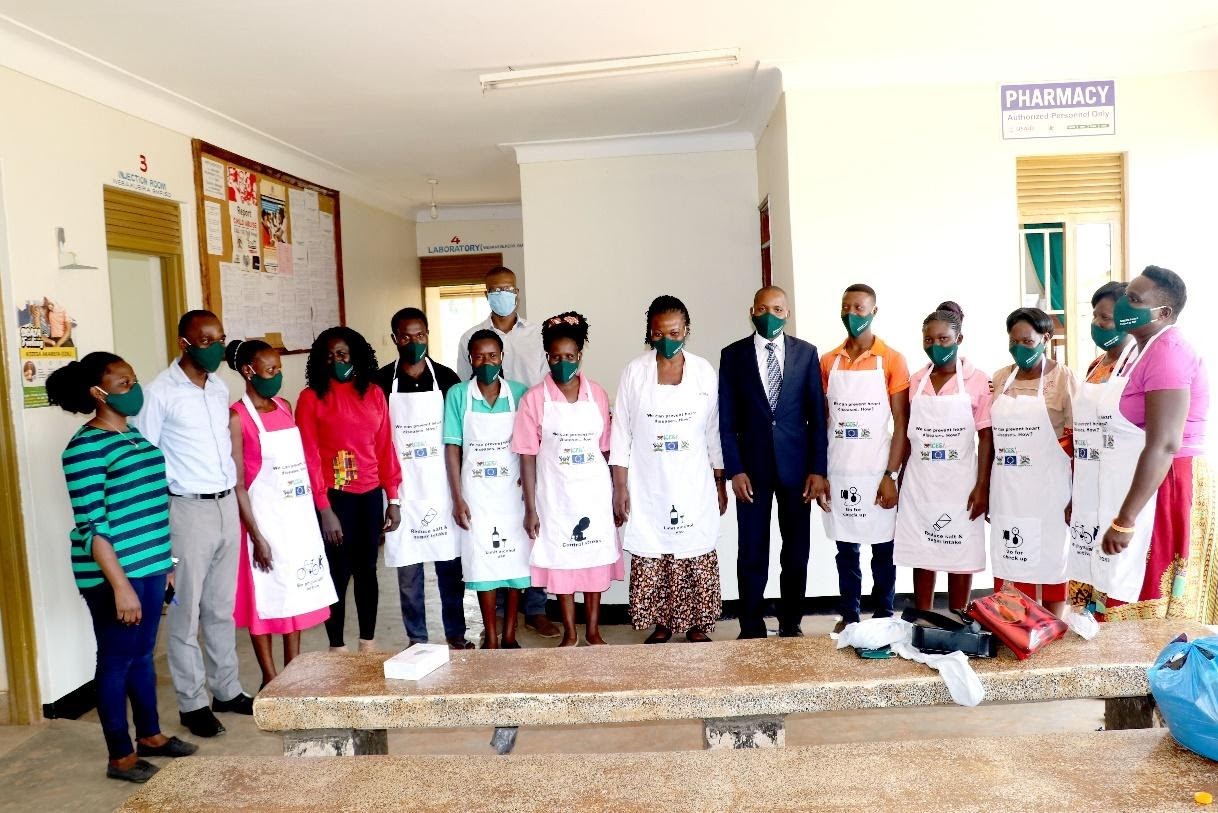
The SPICES project Coordinator Dr. Geofrey Musinguzi (C) flanked by the In-charge Seeta-Nazigo HCIII Dr. Jennifer Hajambo in a group photo with Health Workers at the handover of items donated by the SPICES Uganda Project, MakSPH to Seeta-Nazigo HCIII in Mukono District, Uganda on 21st August 2020. The support will boost the facility's efforts to deal with COVID-19 and CVDs.
A team from the Makerere University School of Public Health (MakSPH) led by Dr. Geofrey Musinguzi on August 21, 2020, tipped health workers at Seeta-Nazigo HCIII on keeping safe against contracting Coronavirus disease (COVID-19). This health facility is one of the sites where the school is implementing the SPICES Uganda project that seeks to curb the increasing Cardiovascular Disease (CVDs) burden.
The team also handed over face masks, a temperature gun, aprons, batteries, and measuring tapes. This is intended to boost the efforts to collect more evidence to support policy and interventions in relation to the prevention of CVDs.
Uganda is experiencing a shift in major causes of death with cases of stroke, heart attack, and heart failure reportedly on the rise. Studies by MakSPH in Mukono and Buikwe districts have indicated that many people are hypertensive. The data collected helps Health Workers (HWs) to effectively advise patients.
The increasing burden of CVDs in these districts and Uganda as a whole is compounded by a lack of integrated primary health care for the early detection and treatment of people with increased risk. Dr. Musinguzi says equipping these pilot health centers provides an opportunity for the government to scale up such interventions to other parts of the country.

